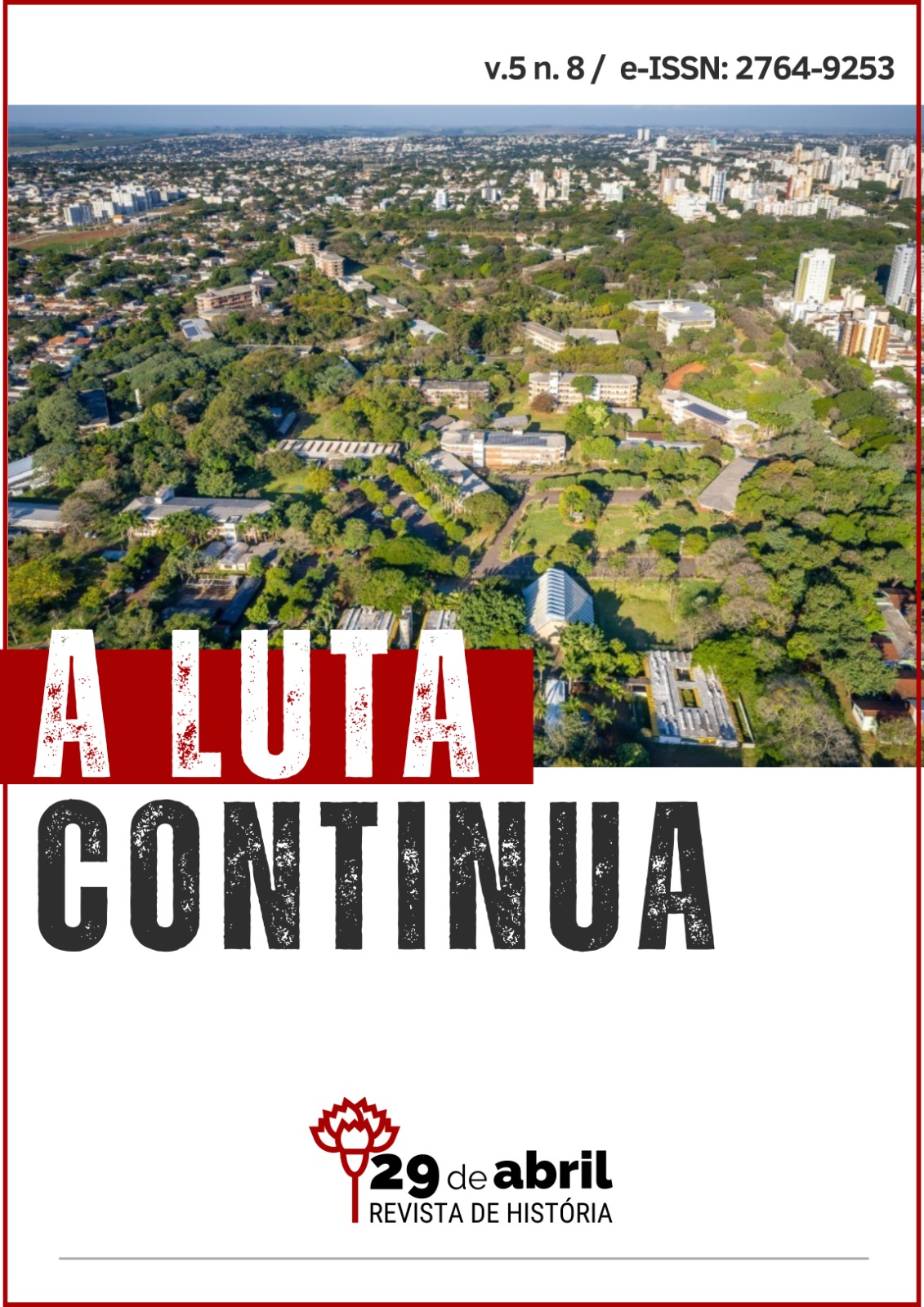Privileging ancestral knowledge as a way to face the crisis and promote environmental preservation
Abstract
The present work aims to demonstrate that indigenous peoples have ancestral knowledge that can help face the environmental crisis we are currently facing. To do this, we first contextualize the climate changes that have been occurring worldwide in the last century and the consequences that these changes, also called extreme weather events, are causing to society. From this, we discuss the meanings of land and nature to indigenous peoples and the knowledge and practices they share with us, which are fundamental to environmental preservation. At the same time, we use consolidated authors from different areas and approaches, such as Donna Haraway, Judith Butler, Rita Segato, Pierre Dardot and Christian Laval, to theorize and develop our hypothesis of the importance of listening to indigenous peoples and allying ourselves with them in the primordial task of "postponing the end of the world".
Downloads
References
DARDOT, Pierre; LAVAL, Christian. Comum: ensaio sobre a Revolução no século XXI. Boitempo Editorial, 2017.
GUARANI, Jerá. Tornar-se selvagem. In: PISEAGRAMA, Wellington Cançado et al (Org.). Terra: antologia afro-indígena. Ubu Editora: 2023.
HARAWAY, Donna. Ficar com o problema: fazer parentes no Chthluceno. São Paulo: n-1 edições, 2023.
HARAWAY, Donna. Saberes localizados: a questão da ciência para o feminismo e o privilégio da perspectiva parcial. Cadernos Pagu (5) 1995: pp. 07-41.
KOSELLECK, Reinhart. Futuro passado: contribuição à semântica dos tempos históricos. Rio de Janeiro: Contraponto: Ed. PUC-Rio, 2006.
KRENAK, Ailton. Ideias para adiar o fim do mundo. São Paulo: Cia das Letras, 2019.
SANTOS, Antônio Bispo dos. Somos da Terra. In: PISEAGRAMA, Wellington Cançado et al (Org.). Terra: antologia afro-indígena. Ubu Editora: 2023.
SEGATO, Rita. Colonialidade do poder e antropologia por demanda. In: Crítica da colonialidade em oito ensaios: e uma antropologia por demanda. Rio de Janeiro: Bazar do Tempo, 2021.
TUPINAMBÁ, Glicéria. O território sonha. In: PISEAGRAMA, Wellington Cançado et al (Org.). Terra: antologia afro-indígena. Ubu Editora: 2023.
Sites
AGÊNCIA DE DESENVOLVIMENTO REGIONAL INTEGRADO. Arquidiocese de Belo Horizonte. Disponível em:
AGÊNCIA GOV. 2024. Impacto das queimadas e urgência climática estão na pauta do G20 nesta semana. Disponível em:
ENTRESOLOS. 2022. Povos indígenas são considerados vitais na preservação da biodiversidade. Disponível em:
FIOCRUZ. Impactos na saúde e caminhos para reduzir os danos dos desastres. Disponível em:
GREENPEACE. Eventos extremos. O que são eventos extremos? Disponível em:
INMET. 2024. Eventos extremos: seca e calor intenso marcam setembro de 2024. Disponível em:
IPAM Amazônia. Quais são as projeções de aquecimento para o future? Disponível em:
MAPBIOMAS BRASIL. 2023. Documento sobre terras indígenas no Brasil é atualizado. Disponível em: < https://brasil.mapbiomas.org/2023/05/03/documento-sobre-terras-indigenas-no-brasil-e-atualizado/>. Acesso em: 25/10/2024.
MATEUS, Felipe. Pesquisadores comprovam efeito protetivo de saberes ancestrais. Jornal da Unicamp. Campinas, 29 de abril a 06 de maio de 2024. Edição 705. Disponível em:
MINISTÉRIO DO MEIO AMBIENTE. Convenção-Quadro das Nações Unidas sobre Mudança do Clima (UNFCCC). Disponível em:
MINISTÉRIO DO MEIO AMBIENTE. Acordo de Paris. Disponível em:
NAÇÕES UNIDAS. Causas e Efeitos das Mudanças Climáticas. Disponível em:
NAÇÕES UNIDAS. 2024. Relatório revela que Brasil teve 12 eventos climáticos extremos em 2023. Disponível em:
NATIONAL GEOGRAPHIC. 2024. O que são eventos climáticos extremos e por que eles são tão perigosos? Disponível em:
OBSERVATÓRIO DE CLIMA E SAÚDE ICICT/FIOCRUZ. Disponível em:
REDE BRASILEIRA RESERVAS DA BIOSFERA. Disponível em:
UOL ECOA. 2024. O que é um evento climático extremo? Disponível em:
WRI Brasil. 10 conclusões do Relatório do IPCC sobre Mudanças Climáticas de 2023. Disponível em:
Youtube:
Direito UFPR. Evento: Pela Defesa dos Povos Indígenas. Youtube, 29 e 30 de abril de 2024. Disponível em:
Copyright (c) 2025 Marina Braga Carneiro

This work is licensed under a Creative Commons Attribution 4.0 International License.





 Esta obra está licenciada com uma Licença
Esta obra está licenciada com uma Licença 